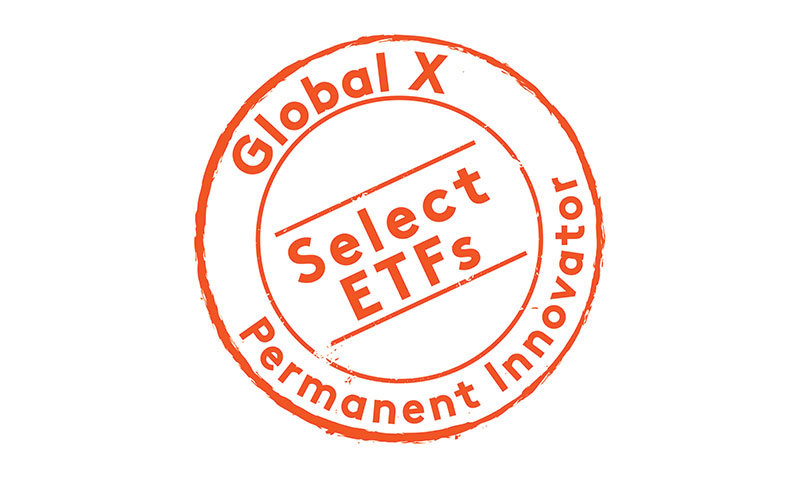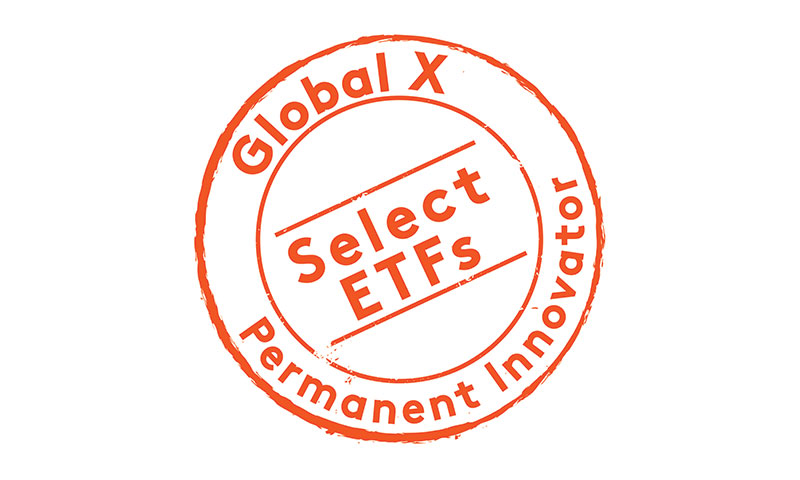Important Information
Investors should not base investment decisions on this website alone. Please refer to the Prospectus for details including the product features and the risk factors. Investment involves risks. There is no guarantee of the repayment of the principal. Investors should note:
- Global X China Cloud Computing ETF’s (the “Fund’s”) investment in equity securities is subject to general market risks, whose value may fluctuate due to various factors, such as changes in investment sentiment, political and economic conditions and issuer-specific factors.
- Companies in the internet sector may face unpredictable changes in growth rates and competition for the services of qualified personnel. The products and services offered by internet companies generally incorporate complex software, which may contain errors, bugs or vulnerabilities.
- China is an emerging market. The Fund invests in Chinese companies which may involve increased risks and special considerations not typically associated with investments in more developed markets, such as liquidity risk, currency risks, political risk, legal and taxation risks, and the likelihood of a high degree of volatility.
- The trading price of the Fund’s unit (the “Unit”) on the Stock Exchange of Hong Kong is driven by market factors such as demand and supply of the Unit. Therefore, the Units may trade at a substantial premium or discount to the Fund’s net asset value.
- The Fund’s synthetic replication strategy will involve investing up to 50% of its net asset value in financial derivative instruments (“FDIs”), mainly funded total return swap transaction(s) through one or more counterparty(ies). Risks associated with FDIs include counterparty/credit risk, liquidity risk, valuation risk, volatility risk and over-the-counter transaction risk. FDIs are susceptible to price fluctuations and higher volatility, and may have large bid and offer spreads and no active secondary markets. The leverage element/component of an FDI can result in a loss significantly greater than the amount invested in the FDI by the Sub-Fund.
- As part of the securities lending transactions, there is a risk of shortfall of collateral value due to inaccurate pricing of the securities lent or change of value of securities lent. This may cause significant losses to the Fund. The borrower may fail to return the securities in a timely manner or at all. The Fund may suffer from a loss or delay when recovering the securities lent out. This may restrict the Fund’s ability in meeting delivery or payment obligations from realisation requests.
Market Insight –
NVIDIA RESUME H20 Sales to China Positive for Chinese Cloud Providers
NVIDIA announced on 14 July that it will resume H20 sales to China soon, as the company gets assurance from the US government that licenses will be granted to NVIDIA for such sales. The deal is part of US-China rare earths talks and comes as a positive surprise to the market, as NVIDIA wrote off US$5.5bn of inventory in April due to US chip restriction. Additionally, NVIDIA also announced new AI chip
Implications
We believe the resumption of H20 sales is positive for large cap internet cloud service providers as it sustains their CAPEX plan and revives market narratives around AI. The initial wave of AI advancements, catalyzed by the rise of Deepseek, gradually receded since April. During this time, the share prices of major internet cloud providers and software/AI firms have experienced a correction of over 15% from their peak in March (Mirae Asset, July 2025).
The rise of Deepseek and other high performing AI models in China brings substantial AI demand, leading to the announcement of CAPEX scale up plans for major internet cloud service providers (for example Alibaba announced CAPEX investment of Rmb380bn in the next 3 years (Alibaba, February 2025); Tencent announced CAPEX at “low teens” percentage of their revenue (Tencent, March, 2025)). However, the US restrictions on high-performance chip exports have cast a shadow over CAPEX plans for Chinese companies, which has become a key financial metric that shapes investment sentiments for the sector. For example, Alibaba’s stock price dropped substantially post FY4Q25 results partially because CAPEX recorded over 20% QoQ decline, even though sales and profitability were generally in-line with market expectation. Therefore, we believe the return of NVIDIA H20 Chips and the relaxation of US chip export restriction will bring higher visibility for CAPEX commitment and bode well for the overall AI industry sentiments.
Moreover, the recent investments by Alibaba, Meituan, and JD in the food delivery sector have raised market concerns, shifting the market’s attention towards intensified price competition within the quick commerce sector. If the enhanced AI narratives encourage companies to realign their focus on AI strategies, which present substantially greater potential and enhanced synergies, this transition could offer solid support for their stock price performance. The build up of AI infrastructure will also accelerate AI application in China, benefiting domestic Software/AI companies across the board.
Global X China Cloud Computing ETF (2826/9826) offers direct exposure to China AI themes through invest in Large Internet platforms/cloud providers, software/AI companies, and data centre. Top 4 holdings are internet companies (Alibaba, Baidu, Tencent, NetEase) that collectively accounts for 37% in weightings. (Mirae Asset, 15 July 2025)
Global X China Cloud Computing ETF (2826/9826) – Top 10 Holdings
| Company | Ticker | Net Asset (%) |
|---|---|---|
| Alibaba | BABA US | 9.44 |
| Baidu | BIDU US | 9.24 |
| Tencent | 700 HK | 8.97 |
| NetEase | NTES US | 8.94 |
| iFlytek | 002230 CH | 6.35 |
| Beijing Kingsoft Office | 688111 CH | 4.69 |
| Horizon Robotics | 9660 HK | 4.05 |
| GDS | GDS US | 3.99 |
| Hundsun Technologies | 600570 CH | 3.69 |
| Kingdee | 268 HK | 3.62 |
| Kingsoft Corp | 3888 HK | 3.22 |
Source: Mirae Asset; 15 July 2025





